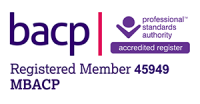Couples counselling is sometimes called marriage counselling or relationship therapy
Our couples counselling services have helped many couples work through difficult relationship issues.
A professional therapist will help facilitate communication between a couple in a way that is usually more structured and constructive than it might be at home. An open and honest dialogue enables couples to focus on their issues, how they might resolve these issues and how they might move forward. The couple will be assisted by a therapist and each partner in the couple should feel comfortable enough to speak honestly in hopes of resolving relationship problems.
There are many relationship issues that can be addressed with couples counselling:
- Restoring intimacy
- Restoring and building trust
- Overcoming past infidelities
- Reducing blame and aggression
- Discussing financial problems
- Resolving domestic issues and sharing domestic responsibilities fairly
- Parenting issues
- Adjusting to retirement or other challenging life transitions
- Managing relationships with others and the wider family
 There may be a recent event or problem that has caused a crisis within a couple or perhaps, over time, the relationship has drifted to a place which leaves one or both partners feeling unheard, unhappy or unfulfilled.
There may be a recent event or problem that has caused a crisis within a couple or perhaps, over time, the relationship has drifted to a place which leaves one or both partners feeling unheard, unhappy or unfulfilled.
Very often a couple will come to us when they are in conflict with each other or they have experienced a crisis in their relationship. A loss of trust, financial problems and sexual issues are some of the more common reasons couples seek couples counselling. Sometimes couples will approach therapy after they have separated in hopes of trying to get back together.
Couples therapy can help couples explore whatever issues need addressing
Frequently, the core of our work is focused on a couple’s ability to communicate with each other and how communication can be improved.
Ignoring or avoiding difficult conversations is rarely helpful. At each couples therapy session, each person will have a chance to discuss their feelings and hear a response from their partner. Couples therapy is about both speaking and listening – it’s important for each partner to hear and understand the other partner’s feelings. This often involves stepping back and letting go of fixed attitudes and perspectives.
Therapy gives space to hear what your partner is saying. This can be a vital step towards healing wounds and moving forward.
Relationship issues are rarely the fault of one partner in the couple
Every couple has its own unique set of relationship dynamics. This recognition and understanding of couple dynamics is an important part of the couples therapy process. Counselling helps couples recognise that both partners are responsible for the relationship and both play a role in problematic dynamics.
 Couples therapy creates a confidential space where both partners can focus on themselves and their relationship away from their busy lives and families. By taking time for themselves and focusing on their relationship, couples can find new perspectives or face difficult realities.
Couples therapy creates a confidential space where both partners can focus on themselves and their relationship away from their busy lives and families. By taking time for themselves and focusing on their relationship, couples can find new perspectives or face difficult realities.
The couples therapist is an impartial third party
A good couples therapist will not take sides. The couple will be able to navigate and negotiate difficulties together, with the help of an experienced, unbiased third party. Couples counselling won’t always eliminate disagreements, but it should help both partners understand each other in a clearer way that may not be possible outside of therapy.
 Couples therapy makes sense. Within a couple there is often a great amount of resentment, hurt, anger and emotional history. Emotions often get in the way of a couple being able to talk together effectively. Unresolved feelings from the past can be hard to overcome. An experienced couples counsellor can manage discussions in therapy so that some degree of progress is achieved.
Couples therapy makes sense. Within a couple there is often a great amount of resentment, hurt, anger and emotional history. Emotions often get in the way of a couple being able to talk together effectively. Unresolved feelings from the past can be hard to overcome. An experienced couples counsellor can manage discussions in therapy so that some degree of progress is achieved.
Our counselling for couples services may be able to help you and your partner.
For individuals concerned about relationship issues, you may want to consider personal therapy.






